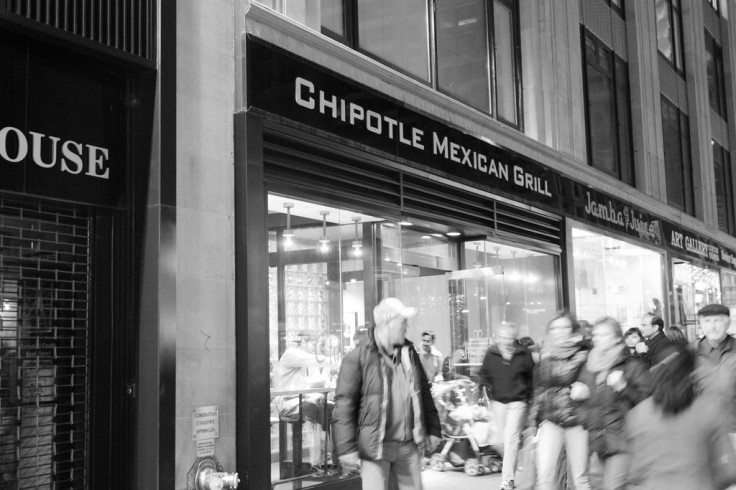3 Foods Global Warming Threatens: How Chipotle's Guacamole Could Be In Serious Danger

It’s global warming time, and the earth has warmed a few degrees. Guacamole’s southern invasion of the United States has stalled, and maple syrup has fled further into Canada. Trout and salmon are gone from the lakes and streams.
Although many dismiss evidence of global warming as a hoax, scientists say there is more carbon dioxide now in the earth’s atmosphere than at any time during the past 800,000 years — indicating some sort of change. As advances in modern farming technology raises global crop yields, gains in wheat and corn since 1980 have been blunted some five percent due to warming.
Now, Chipotle says global warming threatens its future supply of locally grown organic avocados from California, though the fruit is grown conventionally in tropical and Mediterranean regions. For now, the supply remains steady but researchers from the Lawrence Livermore National Laboratory, among others, say California’s avocado crop will decline 40 percent during the next few decades.
“Increasing weather volatility or other long-term changes in global weather patterns, including any changes associated with global climate change, could have a significant impact on the price or availability of some of our ingredients,” company officers wrote last month in their annual report. “In the event of cost increases with respect to one or more of our raw ingredients we may choose to temporarily suspend serving menu items, such as guacamole or one or more of our salsas, rather than paying the increased cost for the ingredients.”
Presently, the socially responsible burrito chain charges $2 for a side of guacamole, a signature aspect of the company’s high-quality fast-food fare whose absence might indeed affect sales. With no guacs to kill for the guacamole, Chipotle may as well pour ketchup over that new vegan burrito.
Aside from California’s avocado crop, North America’s northwestern stand of sugar maples is retreating northward further into Canada, as many plant species are forced to migrate a few feet north per year, or die. Although 80 percent of the world’s maple syrup was produced in the United States by the 1950s, researchers from the University of New Hampshire say further mercury rises will bring fierce competition from oaks and hickories, pushing the maples further away. Today, Quebec produces three-quarters of the world’s maple syrup supply, with U.S. states from Wisconsin to Vermont facing a declining yield should temperature in the future rise much further.
Last June, the U.S. Department of Agriculture priced the average gallon of maple syrup at $39.10 with domestic production down 30 percent from 2011 at $74.6 million. So, for now, maple syrup on everything — while it lasts.
Without cheap guacamole and maple syrup, the world may survive. As global warming threatens low-lying areas of poorer countries, scientists expect food production to rise in many areas of the world. But broad classes of food now taken for granted may disappear from our menus, and perhaps even the greater earth. Although old-timers are quick to remind that fish was once a “poor man’s meal,” prices will continue to rise as salmon and trout, among other cold-water species, disappear from the abundantly teeming lakes and streams once found in the New World.
As global temperatures rise, some marine species have already migrated to higher latitude, as freshwater and Arctic fish are left with nowhere to go. With greater levels of carbon dioxide absorbed into the oceans, scientists reporting in the journal Nature in 2012 predicted a 24 percent drop in 600 marine fishes by mid-century.
To many scientists, global warming remains a certainty as investigators blame a 12-year pause in rising temperatures on abnormal volcanic activity. And as the hardiest of plants and animals march toward higher ground, only one thing remains in doubt. How will America’s celebrity chefs respond to changing foods with changing tastes?
Source: Cheung WWL, Sarmiento JL, Dunne J, et al. Shrinking of Fishes Exacerbates Impacts of Global Ocean Changes on Marine Ecosystems. Nature. 2013.



























